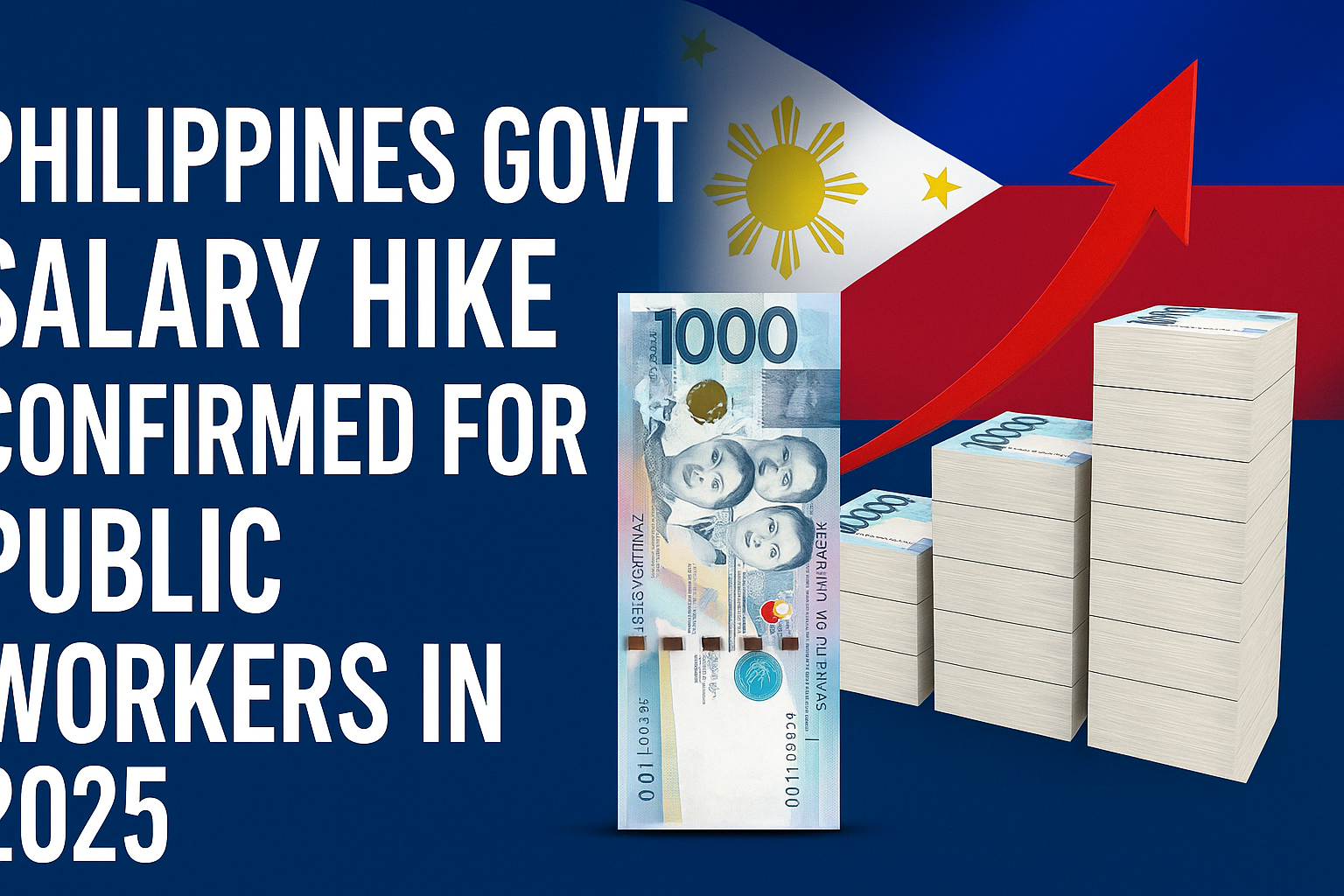In a significant move to improve the economic well-being of state workers, the government has officially confirmed the Govt Salary Increase Philippines program for 2025.
This policy, announced in early June 2025, guarantees a structured wage hike for all eligible public employees beginning January of the coming year.
This increase is part of the final tranche of the Salary Standardization Law V (SSL V), which aims to bring compensation levels in government service closer to those in the private sector.
With the rising cost of living and inflationary pressures continuing to impact daily life, this development is being met with widespread approval by civil servants and labor groups across the nation.
Breakdown of the 2025 Wage Hike for Public Employees
Here’s an overview of the salary adjustments expected under the 2025 implementation:
| Salary Grade | Current Monthly Rate | New Monthly Rate (2025) | Approximate Increase |
|---|---|---|---|
| SG 1 | PHP 13,000 | PHP 13,700 | PHP 700 |
| SG 10 | PHP 22,190 | PHP 23,200 | PHP 1,010 |
| SG 20 | PHP 54,251 | PHP 56,870 | PHP 2,619 |
| SG 24 | PHP 86,742 | PHP 90,420 | PHP 3,678 |
| SG 27 | PHP 122,841 | PHP 128,400 | PHP 5,559 |
This table reflects only a portion of the adjustments under the program, but it highlights the government’s intention to provide a meaningful uplift across the board.
Who Benefits from the Govt Salary Increase Philippines Initiative?
The approved wage hike covers national and local public employees, including teachers, nurses, uniformed personnel, administrative staff, and government executives.
It excludes employees under contractual and job order arrangements who are instead subject to separate employment classifications.
Government officials reiterated that this adjustment was calculated with fiscal responsibility in mind, ensuring that the increase would not compromise funding for critical public services or national projects.
The Department of Budget and Management (DBM) has already allocated the necessary funds in the General Appropriations Act of 2025.
Economic Implications and Budgetary Considerations
The government expects the 2025 Govt Salary Increase Philippines plan to positively impact morale, job satisfaction, and retention rates in public service.
Analysts note that this is particularly crucial in sectors like education and healthcare, where the state continues to grapple with workforce shortages.
However, the implementation is not without scrutiny. Some economic experts have raised concerns about the sustainability of long-term salary adjustments in light of the country’s rising debt and spending commitments.
Still, the DBM maintains that this fourth tranche of SSL V was planned years in advance, with safeguards to maintain fiscal balance.
What Comes Next After the 2025 Wage Hike?
With this final tranche taking effect in January 2025, attention now turns to future policy reforms. Lawmakers and worker groups are urging the government to begin consultations for a possible SSL VI, aimed at further closing the gap between public and private compensation and accounting for inflation post-2025.
The Civil Service Commission (CSC) is also considering performance-based evaluation systems to complement future salary adjustments. This would tie future increases to merit and efficiency, fostering a more competitive and accountable public workforce.
FAQs
Who is eligible for the 2025 wage hike?
All regular and permanent public employees working for national and local government units are covered. Contractual and job order workers are not included in this round of increases.
When will the salary increase take effect?
The approved increase will take effect starting January 2025 and will reflect in the first payroll cycle of the year.
Will there be a new Salary Standardization Law after SSL V?
There is currently no confirmed new law, but proposals for SSL VI are being discussed, with possible drafts expected by late 2025 or early 2026.
